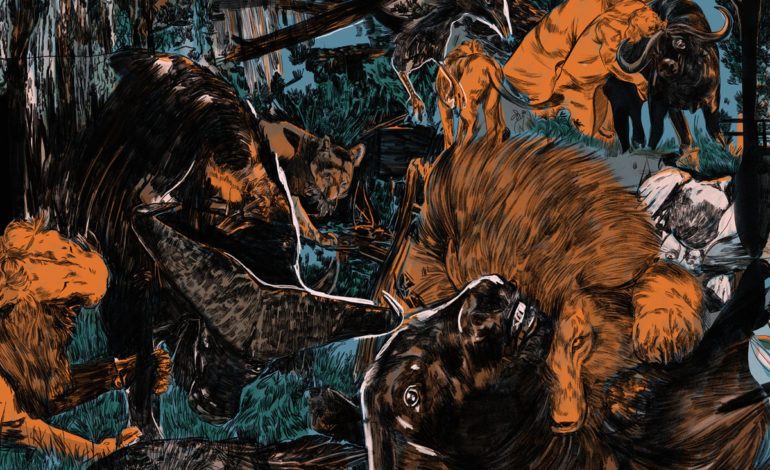

Headbanging catharsis for rock lovers
When writing the tragedy Titus Andronicus, Shakespeare not only created one of history’s most respected plays, but also a name that would inspire artists centuries apart. Formed in 2005 by founding member and vocalist Patrick Stickles, the band Titus Andronicus’ artistry has evolved since their self-released and self-titled 2005 debut EP.
“My Mother is Going to Kill Me” isn’t exactly the name of a track that a normal band would choose to open their album with. However, Titus Andronicus is no ordinary band. Still standing 17 years after its formation in 2005, the New Jersey band cleverly introduces their 7th studio album to their listeners by… scaring them…
“My Mother is Going to Kill Me” opens the album chillingly, sounding like the intro to a blockbuster horror movie, full with police sirens and screeching doors, or possibly cats. It doesn’t grant you any time to adjust, its effect is immediate; you are now intrigued and engaged. Guitars soon make their way in, followed by liberating drums, which give the track a turn on its head, as it becomes inspiring.
Not so inspiring, although more anger-inducing, is “(I’m) Screwed,” which talks about pressure exerted on society by ‘the system.’ It’s made to make the listener think about who is really in power, and how much the system is really controlling our lives. Anger and sarcastic justice-seeking lyrics such as “our poverty is their policy,” “you’ve got the hungry under lock and key” and “you’ll never let my body be my property,” really drive the point home.
“Bridge and Tunnel” makes sure to kick its listeners into a curb. And it sure does have time to do all that, considering it is the longest track on the album, lasting a whopping 7 minutes and 11 seconds. It goes from ’70s-inspired rock to a sound that is somewhat Christmas-y around the middle of the track, using jingle bells as base percussion, and performing guitar riffs that can only be described as Christmas in June. The track then goes quiet, then opens the stereophonic space and takes its sound to a more haunting theme. This part of the song is led by piano and a female vocal. Finally, the track returns to its native rock sound with Stickles back at the vocals.
Leading The Will to Live into a darker theme, “Dead Meat” shifts the tone into something a bit more serious and haunting. “An Anomaly” brings back ’80s rock guitar riffs whilst aiding “Dead Meat” to take the listener to hell itself. By constantly bringing up religious imagery, more specifically, Satan himself. Patrick Stickles reminds the listener, “it was God who made the Devil” and “down in the flames Satan’s patiently waiting,” while the song slows down to a stop, with only drum kicks remaining, it creates the illusion of a heartbeat fading.
After quite a few tense and dark tracks, “Baby Crazy,” “All Through the Night” and “We’re Coming Back” are a much-needed breather. Their feel-good chords and melodies are key to give the listener a rest and a brighter outlook on the album.
“69 Stones” is the ballad of the album. It consists of a very swingy piano, rough vocals and a harmonica. As the song progresses, it is easy to realize this is the album’s namesake, constantly mentioning the ‘will to live’ as a concept, recognizing it as “an awful curse,” and something that “won’t leave me alone” as it “feels like carrying 69 stones.”
The Will to Live is reminiscent of early 2000s rock, the kind that is energetic enough to not be emo or metal, but hard enough to make almost every track sound like the staple of either the opening or the rolling credits of a coming-of-age movie. The tracks that don’t fit into that category border on a darker sound or theme.
The mix is perfect for the genre: dry and bare with minimal harmonies. The Will to Live boldly continues taking steps towards opposing the current industry standard of overprocessing elements such as vocals in songs. The vocal layering on the songs is quite raw. By including several takes of the lead vocals and executing them all at the same time, it creates more emphasis, rawness, and a tad bit of dissonance in pitch that makes every track more natural and thus easier to connect with. The album’s producers, Patrick Stickles and Howard Bilerman, made every track a guaranteed head-banger that will keep you hooked throughout the album.
